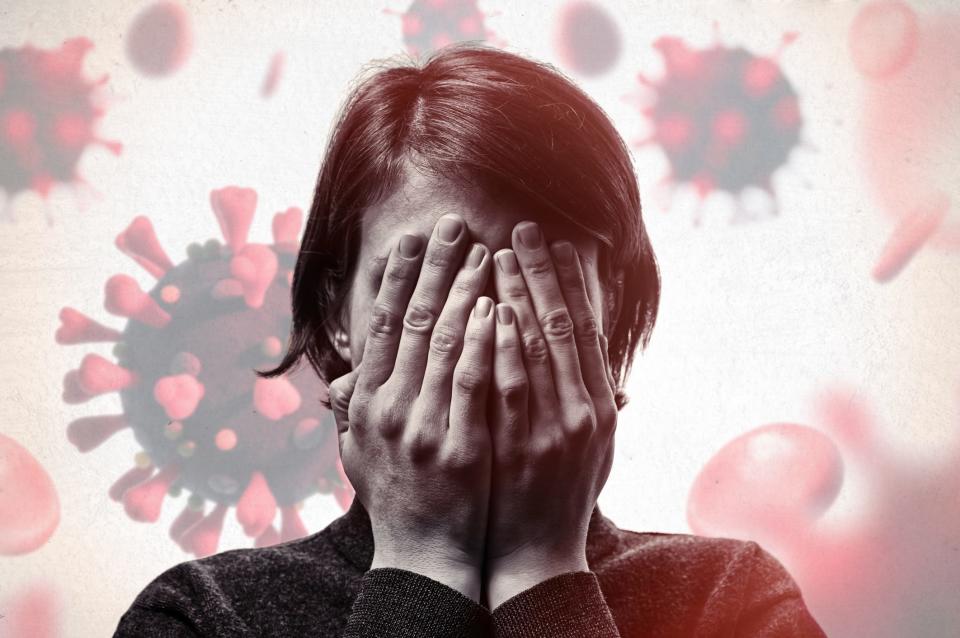Is COVID shame still a thing? Doctors say it shouldn't be.
- Oops!Something went wrong.Please try again later.
Neil Williams was in charge of making the first in-person pandemic meeting with his coworkers safe. He made sure people were following precautions like masking and socially distancing. So, when he tested positive a few days later, he was "extremely hard" on himself.
While his coworkers were understanding, he felt an overwhelming sense of disappointment over his positive test.
Dr. Eric Ascher, a family medicine physician at Lenox Hill Hospital in New York, has seen a wide-range of patient emotions during the years-long COVID-19 pandemic, including shame.
Especially earlier in the pandemic, Ascher said his patients grappled with the stigma of testing positive for COVID-19.
"There was a sense that if you contracted the virus, you must have done something wrong – did not get vaccinated, went to public venues, did not wear a mask," he says.
But even with access to vaccines, boosters and testing, he explains, plenty of people are contracting the virus, especially as the contagious omicron variant spreads around the United States.
"These are only safeguards and means of protection, not guarantees," he says of vaccines and the COVID guidelines. "Your positive test does not make you a failure, it makes you a human living in a pandemic with a virus that is very contagious."
Williams knows just how contagious it can be. More than a year and three shots after his first case of COVID, Williams contracted the virus again. But this time, he says he doesn't feel the same guilt as before.
"With omicron happening, it seems that at some point, you're just statistically going to get it despite your best effort," Williams explains. "We're a little bit more understanding of each other nowadays when we find that our neighbor or buddy or co-worker contracted the virus."
Ascher believes our collective attitude toward contracting COVID is slowly shifting, mainly in breakthrough cases
"If you are double vaccinated and received your booster, and you wear a proper mask in indoor public facilities or on public transportation and you still come down with COVID, you should not feel shameful or like a failure," he says. "You must remember that if you followed all the precautions, you did everything you could. No one is invincible to the infection. You hopefully experienced a mild case of COVID, completed your quarantine responsibly and tested for the virus before spreading it to others."

More: Bragging about not getting tested for COVID? Doctors call it 'dangerous,' 'selfish'
Dr. Robert Frenck, an infectious disease doctor and director of the Vaccine Research Center at Cincinnati Children’s Hospital, agrees that the vaccines are "working well" and doing what they're meant to be doing: "preventing you from being hospitalized, preventing you from going the ICU, preventing people from dying."
"I totally understand why people are either confused or they feel like a failure and that's when I tell people 'No, no, no, you shouldn't feel like that. You should feel you've done the right thing,'" he explains. "They're protecting not only themselves, but they're protecting others."
Instead, he suggests having a perspective shift from failure to success story. "Maybe you got infected, but let's look at the (lowered) severity of your symptoms."
While shame can be felt internally, it can also be felt from others. For example, feeling judged by friends or family who maybe don't want to make plans with you after they learn you had COVID – even after your quarantine ends.
Ascher's advice for navigating these situations is: "You must do what makes you comfortable."
"If you want to see a loved one who is post-quarantine and you are fearful, that too is normal. If you are worried about contracting COVID from a family member or friend, remember that 10-14 days after they were ill, it is very unlikely that they are carrying virus to spread, especially with omicron," he says. "Shaming isn't necessary and will not lead to a speedier recovery. I recommend being supportive."
This article originally appeared on USA TODAY: COVID shame: Doctors say the stigma should end as omicron spreads

